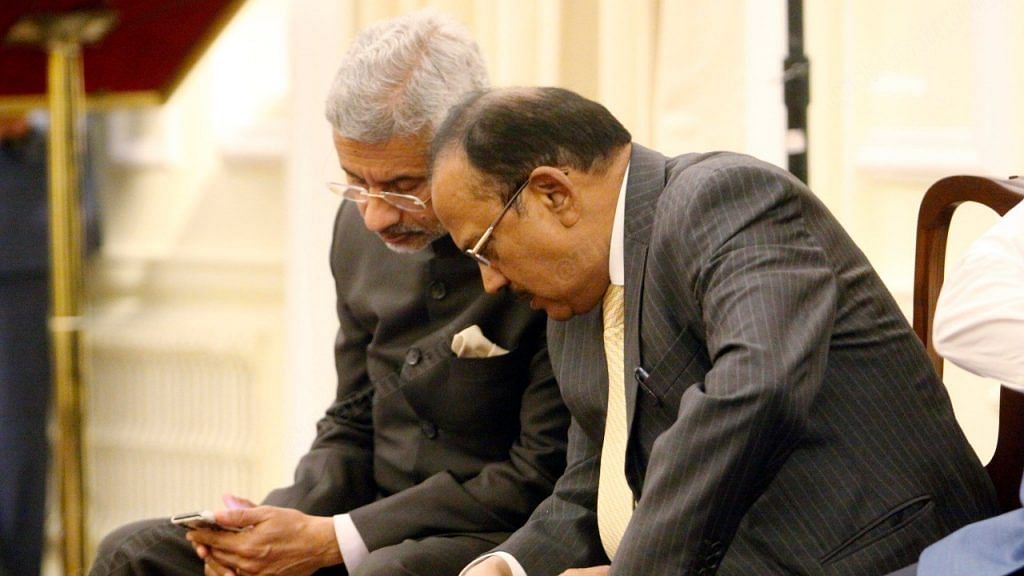The US-India Initiative on Critical and Emerging Technologies or iCET was launched by Prime Minister Narendra Modi and US President Joe Biden on the sidelines of the Quad summit in May 2022. The first meeting of the iCET will take place in Washington D.C. on 31 January between National Security Advisor Ajit Doval and his counterpart Jake Sullivan. The dialogue presents an opportunity for the two nations to further strengthen the upward trajectory of their defence ties and create momentum in trade.
The iCET promise
The significance of the iCET lies in its assertion of “outcome-oriented cooperation” as it is led by the two nations’ national security advisors. The dialogue focusses on dual-use and deep technology areas of strategic importance such as artificial intelligence (AI), quantum computing, 5G/6G, biotech, space, and semiconductors. Further, the success of a similar initiative called High Technology Cooperation Group (HTCG), which was launched in 2002, gives hope too. HTCG started the process of greater strategic cooperation that eventually led to a review of export controls on dual-use technology, thereby increasing bilateral trade. The iCET has a similar opportunity to lay the foundation for the future of US-India strategic engagement and innovation.
Also read: The time-tested US-Israel alliance is under stress. Biden-Harris wary of new Netanyahu govt
Sharp focus
The iCET has its work cut out for the first meeting. Although no details have been divulged, a sharp focus on high-priority issues surrounding the technology areas outlined is expected. In AI, the US and India can emerge as leaders by establishing norms and standards for ethical AI and data use. India’s space industry is getting liberalised and has been undergoing reforms ever since it was opened up to the private sector. The anticipated space policy and law will further drive reforms. The two countries need to ensure that regulatory uncertainty and export/import controls in the space sector do not culminate in the industry cooperation falling short of its potential.
Finally, the semiconductor sector is an area where the US and India can leverage their mutual competitive advantage in design and assembly, test, and packaging (ATP) to capture a greater combined share in the total global supply chain. Securing supply and access to critical minerals in semiconductor manufacturing is also going to be critical to manage supply chain dependencies on China.
Also read: How Saudi Arabia is using China to grow its influence, hedge the US
Heralding a new era
The iCET presents a real opportunity to create momentum in the India-US trade ties through an industry-focused agenda. And with the trade deal limbo, long spell without a confirmed ambassador, and geopolitical distractions, a strong iCET agenda will signal a recommitment of the US to a strong relationship with India. Both countries can use the iCET as a platform to usher in a new era of strategic cooperation. Some ideas that iCET may explore are as follows:
Indian companies as validated end users: The validated end-user (VEU) programme can be a tool for dual-use technology transfers in critical and emerging technology that are mutually beneficial for both the US and India. The former can identify champions in the Indian defence ecosystem and offer them VEU exemptions to avoid any licensing hurdles. Such companies can be from sectors of strategic dual-use technology, especially where the US supply chain is fragile. Presently, India only has one entity – General Electric with VEU exemption — whereas China has 11.
Regulatory ease and clarity for space industry: India should address issues such as insurance and liability, industry certifications and standardisations. Safeguards must be created for intellectual property to make the space sector foreign-investor and industry-friendly. India should also seriously consider joining the US’ Artemis Accords — the multilateral agreements between the US and other governments with an aim to return humans to the moon by 2025 — to tap into the burgeoning lunar economy and space tourism sector.
Make India a DFARS qualifying country: Currently, 26 countries are approved or qualify for Defense Federal Acquisition Regulation Supplement (DFARS), which governs the acquisition of goods and services for the US’ Department of Defense (DoD). The qualified countries can provide supplies to the DoD — and India is not on that list. If India qualifies as the 27th member, it will increase supply chain resiliency, cost efficiency, and technological innovations for the US and partner countries. Such a move will also open new markets for India’s deep technology players. Since most critical and emerging technologies today are dual-use, it can give a fillip to the two countries’ innovation ecosystem.
It is equally important to operationalise the Space Situational Awareness agreement by tracking space objects and conducting tabletop exercises and war games. Developing remote sensing capabilities and sharing space-related data will be key to realise these efforts.
Both the US and India conduct innovation challenges for start-ups through the Defense Innovation Unit and iDex, respectively. The two nations can start a joint challenge focussing on areas of critical and emerging technology where both countries’ start-ups can together pitch for awards.
Finally, the iCET is a good time to announce a date for the promised US-India AI dialogue that can harness greater opportunities for joint innovation.
Kriti Upadhyaya is vice president of strategic advisory for C2Ci Inc, an intelligent platforms company based in the United States. She is also the founding director of IndUS Tech Council, a Washington D.C.-based nonprofit focused on accelerating U.S.-India technology ties. Views are personal.
(Edited by Humra Laeeq)
